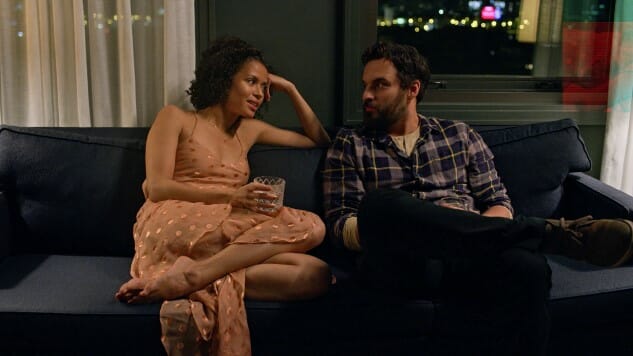Easy‘s Final Season Refines its Bittersweet Midwestern Romanticism
Photos via Netflix
Netflix’s Chicago anthology from Joe Swanberg, Easy, came out the same year I moved to the city. I gave it a pretty positive review only six months into being a Midwesterner. Three years later, I’ve found a home here and Easy has matured into more than a light cross-section of a city. In its continued examination of its optimistic, yearning, yet ultimately homey Chicagoans, Easy has pinpointed how a certain type of Midwestern urbanite sees themselves with imperfect, bumbling, trying-our-best grace.
A benefit of being an anthology is that you can skip and hop over time as much as you’d like, catching up with familiar characters while still sprinkling in new bits of flavor to keep things fresh. It’s a little like the sublime vignettes of High Maintenance but with heady and heightened empathetic comedy replaced with awkward, earnest, heartwarming fuck-ups. Rather than define a city through a subculture, it’s finding a culture’s common threads through disparate stories. Creator Joe Swanberg leads his actors through plenty of stuttery improvisation that is less intent on capturing realistic dialogue and more focused on embodying a group of people constantly uncomfortable with their own emotions. “I’ll keep all my emotions right here, and then one day I’ll die,” is John Mulaney’s riff on a stoic Irish upbringing, and Easy’s hiccupy conversations show these similarly bottled-up characters’ feelings dribbling through the cracks.
The midseason “Swipe Left” is the longest episode of the third season (51 minutes), 20 of which are taken up by a single seated bar conversation between Andi (Elizabeth Reaser) and Kyle (Michael Chernus) addressing their asymmetrical success testing an open marriage. It’s like surgery. It’s painful. It’s often dull. And it’s utterly accurate. They disjointedly use the modern language of therapy to no avail, eventually abandoning it for Andi’s repeated statement that their situation “sucks.” Marc Maron’s Jacob fumbles around, trying to get at the “secret understanding” that is Midwestern flirting. Social media stars and influencers? “Trash,” says Jake Johnson’s Andrew. Somebody somewhere can probably find the right words, but not here. This negotiation of language and emotion helps the series dodge a larger scope foisted upon it by others—defining Chicago—and settle into its well-earned “uncomfort zone.”
Easy has become more sour over time, which is nice once you’ve learned to appreciate its flavor. It’s partially acclimation, like how initial awe at skyscrapers and landmarks is slowly replaced with appreciation for community gardens and ancient tavern signs. And some is age wearing and tearing at the characters, especially as they turn up again season after season. The change is a little bitter, but ultimately satisfying and necessary. The wheels have to keep spinning, with progress measured in inches and cents.
-

-

-

-

-

-

-

-

-

-

-

-

-

-

-

-

-

-

-

-

-

-

-

-

-

-

-

-

-

-

-

-

-

-

-

-

-

-

-

-








































